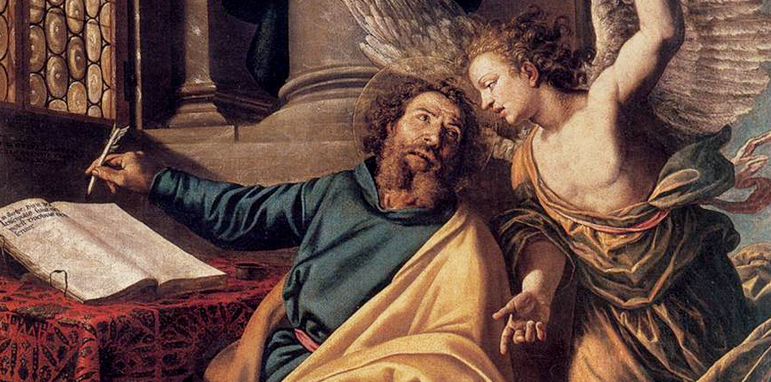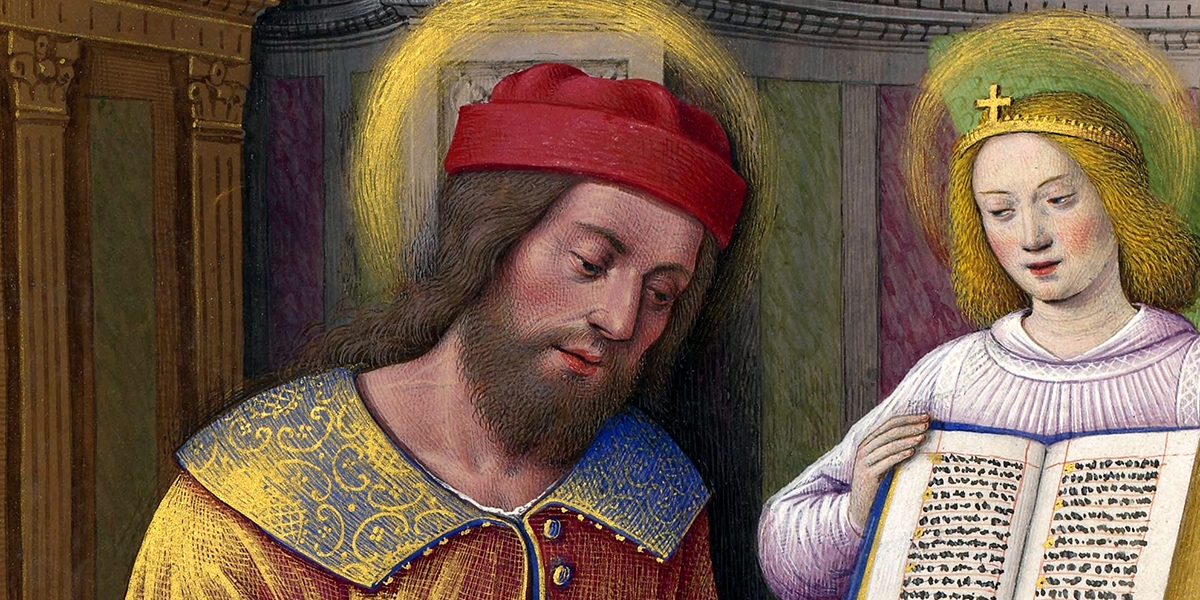Matthew the Apostle
Matthew was the son of Alphaeus born at Capernaum, a settlement on the shore of the Sea of Galilee , about a year after the birth of Jesus. One day Jesus was walking and saw a tax collector named Matthew sitting at a tax collection post, and said to him, "Follow me." And Matthew stood up and followed Him, and became one of His twelve apostles. (See M 9:9-13 = P 2:13-17 = L 5:27-32)
Tax collectors in those days were social outcasts. Devout Jews avoided them because they were usually dishonest. The job carried no salary, and they were expected to make their profits by cheating the people from whom they collected taxes. Patriotic and nationalistic Jews hated them because they were agents of the Roman government, the conquerors, and hated them with a double hatred if (like Matthew) they were Jews, because they had gone over to the enemy, had betrayed their own people for money. Thus, throughout the Gospels, we find tax collectors (publicans) mentioned as a standard type of sinful and despised outcast. Matthew brought many of his former associates to meet Jesus, and social outcasts in general were shown that the love of Jesus extended even to them.
After his calling, when Saint Matthew gave a feast in Christ's honor, the guests were drawn from among his friends—including fellow tax collectors and sinners (Matthew 9:10-13). The Pharisees objected to Christ eating with such people, to which Christ responded, "I have not come to call the just, but sinners," summing up the Christian message of salvation.
The name "Matthew" means "gift of the LORD." Mark and Luke, in the story of his calling, name him "Levi." Perhaps this was his original name, and he received a new name from Jesus when he became a disciple. It has also been suggested that he was simply a member of the tribe of Levi.

متی
متی در قرن اول در حبشه درگذشت و مزارش در سالرنو ایتالیاست.
متی در کفرناحوم و در زمان هرود انتیپاس مامور سنتی و محلی برای جمع آوری مالیات بوده است، هر چند که او واقعا یک مامور رومی نبوده اما در ناحیه جلیل به خدمت مشغول بوده و احتمالا زیردست رومی بوده و برای آنان مالیات جمع می کرده است. به احتمال بسیار زیاد وی دارای تحصیلات و آشنا به زبان آرامی و یونانی برای خواندن و نوشتن بوده، که ضرورت شغل وی بوده است.
St. Matthew was a first-century tax collector who left his work and followed Jesus. He wrote about the life and ministry of Christ in his Gospel, Not much is known about the life of Matthew, but his writings tell us about Christ’s life and works, and the Church considered his Gospel to be of definitive value in verifying Jesus as the Messiah.
In the Gospels of Mark, Luke, and Matthew, they describe the first encounter of Jesus and Matthew. At the time, tax collectors were mocked and hated, often because they took extra money to earn their own living.
Matthew likely met Jesus near Capernaum. As Matthew wrote, Jesus saw him and called him, saying “Follow me.” And Matthew got up and followed him.
By calling Matthew, Jesus was making a point about his universal mission — everyone was welcome, even tax collectors.
Matthew also wrote about Jesus’ instructions to go out and make disciples of all the nations. He is traditionally thought to have died as a martyr in a territory near present-day Egypt
عیسی زمانیکه در کفرناحوم بود او را دید و به او گفت: «مرا متابعت کن.» و متی برخاسته و به دنبال عیسی رفت و از شاگردان وی گشت. در همان روز، متی مهمانی بزرگی داد و عیسی و شاگردانش و دوستان متی که از باجگیران و گناهکاران بودند نیز در این مهمانی شرکت داشتند.
بنا بر روایات، متی برای مدت پانزده سال در فلسطین موعظه می کرده است و سپس به اتیوپی و مقدونیه رفته است. گفته می شود وی به مرگ طبیعی چه در اتیوپی یا مقدونیه درگذشته است. اما کلیسای کاتولیک بر این باور است که متی در اتیوپی مصلوب و سپس گردن زده شده و به شهادت رسیده است. اما در کتاب مقدس در این باره و مرگ وی چیزی گفته نشده است.
